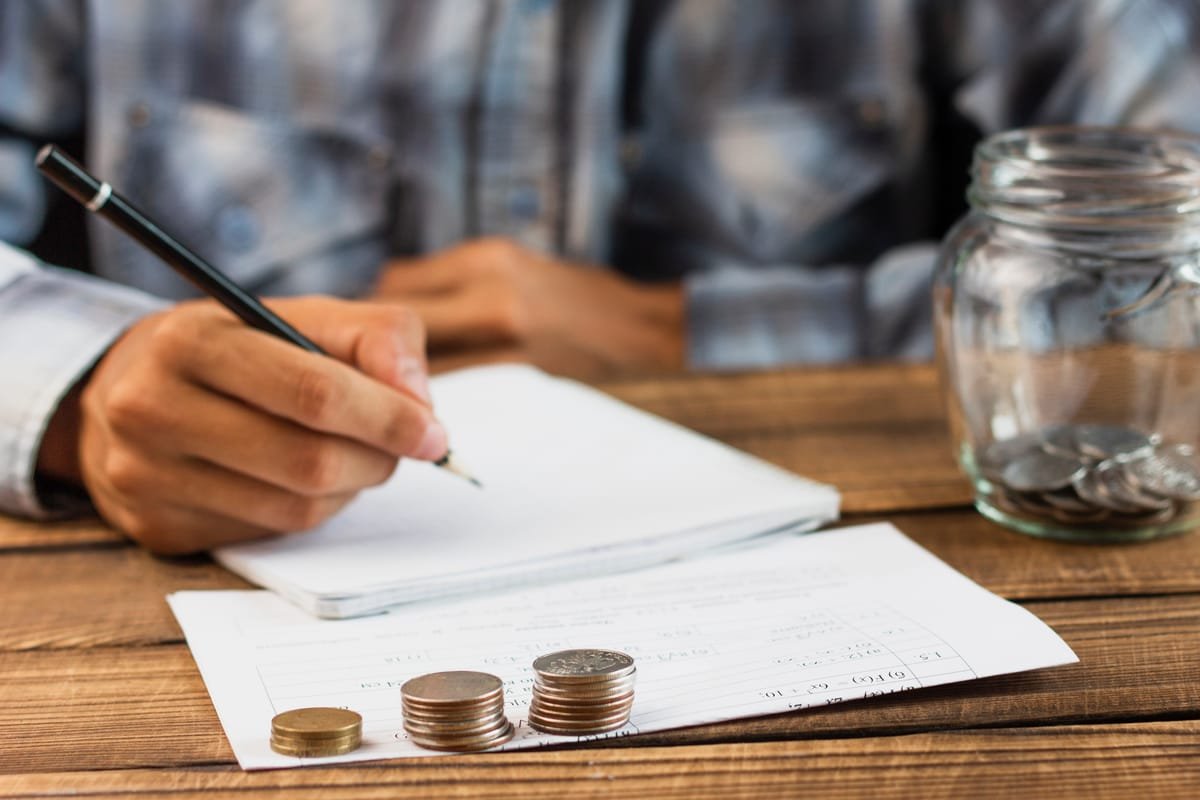The Paul Singer Act, approved on December 23, 2024, marks a significant moment for the solidarity economy in Brazil.
Law No. 15,068/2024, also referred to as the official National Solidarity Economy Policy, establishes the National Solidarity Economy System (Sinaes) to support social inclusion and sustainable economic growth.
We have chosen the key news and updates from the law to ensure you are informed.
How did the National Solidarity Economy Policy function prior to the Paul Singer Act?
Before the Paul Singer Law, the solidarity economy was not officially recognized or regulated in a cohesive manner within the legal framework.
Self-directed and collaborative projects encountered challenges in securing financial backing, technical assistance, and entry into established markets.
Furthermore, there was no organized national policy to incorporate and acknowledge these efforts as a component of the country’s economy.
The absence of regulation also made it difficult for legal professionals to address matters concerning the solidarity economy due to a lack of guidelines.
The new law marks a significant step forward in acknowledging and supporting an economic system that prioritizes cooperation, self-governance, and communal advantages.
What was modified by Law No. 15,068/2024?
The Paul Singer Law provided a strong legal foundation for enhancing the solidarity economy.
It introduces a policy for the National Solidarity Economy to encourage the growth of the Brazilian economy with a greater emphasis on projects aligned with social and environmental values.
The law also establishes the Sinaes (National System of Solidarity Economy), which is designed to enhance these cooperative initiatives through various actions and resources.
Let’s examine how the legal text deals with each of these points.
National Solidarity Economy Policy: What are the mechanisms of operation? [Articles 3 to 9]
The National Solidarity Economy Policy aims to promote an economic system founded on principles like solidarity, self-governance, and sustainability.
It sets specific rules for running and backing solidarity projects to encourage seamless coordination among various efforts.
What does the advancement of solidarity economy entail? [Article 4]
The Law no. 15.068/2024 outlines various traits that can distinguish solidarity economy businesses.
Projects eligible for the National Solidarity Economy Policy must have the characteristics outlined in Article 4.
Self-management organizations are groups in which members collectively participate in managing economic activities and making decisions about sharing the outcomes. This is achieved through transparent and democratic administration, where assembly sovereignty and individual member votes are crucial.
Their members are actively engaged in achieving their social objective.
Engage in fair and ethical trade practices.
Distribute the financial outcomes of economic activities based on the decision of its members, taking into account the proportionality of individual and collective operations and economic activities.
V – aims to achieve its objectives through its net operational result, while also providing assistance to similar initiatives facing challenges in establishment or growth, and contributing to community development and the professional and social development of its members.
It is crucial to mention that:
- The structure of the project as a recipient relies on its organizational structure (Article 4(1)).
- Solidarity economic initiatives will be considered non-profit legal entities if they are formally established under the law (Article 4, § 2).
- Undertakings with lower-level labor intermediation may not receive benefits (Article 4, Section 3).
- Undertakings choosing a cooperative corporate structure must adhere to particular laws (Article 4, Section 4).
What are the key principles for the beneficiary projects of the National Solidarity Economy Policy? [Article 5]
The Paul Singer Law sets out certain rules that must be adhered to by recipient projects.
- Encouraging sustainable practices that promote environmental protection and minimize environmental effects.
- Valuing and promoting inclusion while respecting cultural and social diversity.
- Emphasize the significance of workers’ roles in management by focusing on self-management and collaborative efforts.
Refer to Article 5 of Law No. 15.068/2024 for complete information.
Art. 5 provides guidance for projects eligible for the National Solidarity Economy Policy beneficiaries.
Democratic management;
Free and voluntary membership is ensured.
III – fair employment opportunities;
IV – sustainability of the environment;
Collaboration among businesses and networks.
Community integration involves incorporating democratic practices and citizenship.
VII – Implementation of reasonable pricing practices in line with the principles of fair and ethical trade.
Respecting human differences and dignity, and promoting fairness and basic rights and protections.
IX – clear and open resource management and equitable sharing of outcomes.
Encourage members to actively participate in enhancing their projects.
Members participating in achieving the social goal of the business.
Distribution of economic activity financial results is based on member deliberation and considers the proportionality of individual and collective operations and activities.
Fair and solidarity trade involves a unique commercial approach that emphasizes social justice and solidarity among businesses in the solidarity economy. Fair pricing is determined through open dialogue, transparency, and the active involvement of all stakeholders, leading to a fair distribution of profits along the production chain.
What are the goals and guidelines of the National Solidarity Economy Policy?
The goals and principles that must guide the beneficiary enterprises are outlined in the 6th and 7th articles of the National Solidarity Economy Policy.
- Reduce disparities in society and among regions by creating jobs and increasing income.
- Build stronger networks for the solidarity economy by establishing links between initiatives to share resources and knowledge.
- Developing specialized resources to make it easier for these businesses to expand their market reach and access funding.
- Prioritizing the well-being of the community over individual profits emphasizes the value of human labor over capital.
- Democratic and inclusive practices: Guaranteeing fair involvement in decision-making processes.
- Encouraging mindful purchases and supporting small-scale production to boost the local economy and solidarity.
What are the main pillars of the National Solidarity Economy Policy? [Art. 8]
Law no. 15.068/2024 outlines specific action axes in the pursuit of the National Solidarity Economy Policy chapter.
The National Solidarity Economy Policy is structured through the following initiatives:
I – training, support, and social and professional development.
II – availability of financial and credit services;
Promotion of marketing, fair and solidarity trade, and responsible consumption.
Supporting solidarity economic projects and collaboration networks.
Workers organized in self-management promote the recovery of companies.
Supporting research and development and the proper adoption of technologies is essential.
Paragraph 1 of the Regulation will impact the execution of the National Solidarity Economy Policy following the guidelines specified in this Article’s Chapter.
The National Solidarity Economy Policy aims to support individuals in need by prioritizing those in social vulnerability who participate in solidarity economic initiatives.
Solidarity economic initiatives must be formalized through the National Register of Solidarity Economic Enterprises in order to benefit from public policies.
All Sinaes members have access to registration information, and informal solidarity economy groups will be motivated to pursue legal regularization.
Sinaes Program, which is also known as the National Solidarity Economy System, is discussed in Articles 10 to 14.
Law no 15.068/2024 establishes the National System of Solidarity Economy (Sinaes) to manage and oversee the execution of the National Solidarity Economy Policy (Art. 10).
It operates as a combined system of various efforts and assets to ensure its efficient implementation.
- Sinaes aims to connect solidarity economy efforts on various levels to encourage knowledge sharing and collaborative network building.
- Emphasizing social participation, ensuring transparency and inclusion in their actions is highlighted in the guidelines (Article 12).
- Sinaes serves as a link between various actors, including government, non-governmental organizations, and solidarity economy networks, promoting integration (Article 13).
State, district, municipal, or territorial conferences on Solidarity Economy will be organized, along with a national conference on the topic.

What modifications are there in the Civil Code? [Article 15]
Law no. 15.068/2024 also included modifications in the Civil Code (CC) by officially acknowledging solidarity economy businesses as legal entities.
Art. 15 also includes mechanisms to make the formalization of these projects easier, encouraging the acknowledgment of their unique legal and economic characteristics.
The provision in article 44 of the CC will now become effective in the following manner.
Legal entities under private law are recognized according to Article 44 of the Civil Code.
I – organizations.
Societies II.
III – the basics.
Religious institutions;
Political parties are represented by the letter V.
VII – the growth of the solidarity economy.
Religious organizations have the freedom to create, organize, structure internally, and operate as they wish, and government authorities are not allowed to refuse them recognition or registration of the necessary acts for their functioning.
The rules for associations also apply to solidarity economy ventures and societies outlined in Book II of this Code.
The political parties will be structured and operate in accordance with the regulations set by a particular law.
This modification ensures more legal certainty for cooperatives and associations, previously encountering challenges in registering their operations or obtaining loans.
Lawyers now have a more defined legal structure to support and protect these enterprises.
When is this law effective? [Article 16]
Law no. 15.068/2024 came into effect on December 23, 2024, as stated in Article 16.
Why is this legislation commonly referred to as the Paul Singer Law?
Paul Singer was a key figure in promoting the solidarity economy in Brazil.
He dedicated his life to advocating for fairer and more sustainable economic models as an economist and sociologist.
His efforts sparked numerous solidarity economy projects nationwide and played a key role in achieving political and social acknowledgment.
Honoring Paul Singer’s name demonstrates the significance of his legacy and highlights Brazil’s dedication to creating an inclusive and supportive economic structure.
The Significance of a National Policy for Solidarity Economy
The Paul Singer Act marks a significant step forward for the solidarity economy in Brazil.
Legislation promotes a more conducive setting for initiatives focused on collaboration, social integration, and sustainability through the introduction of the National Solidarity Economy Policy and the Sinaes Program.
Clear and thorough regulations provide a solid foundation for lawyers and other professionals to support the protection and growth of ventures that help reduce inequalities and strengthen the local economy.
References:
The text provides information about a law published in December 2024 that concerns the Civil Code of 2002.






Leave a Reply